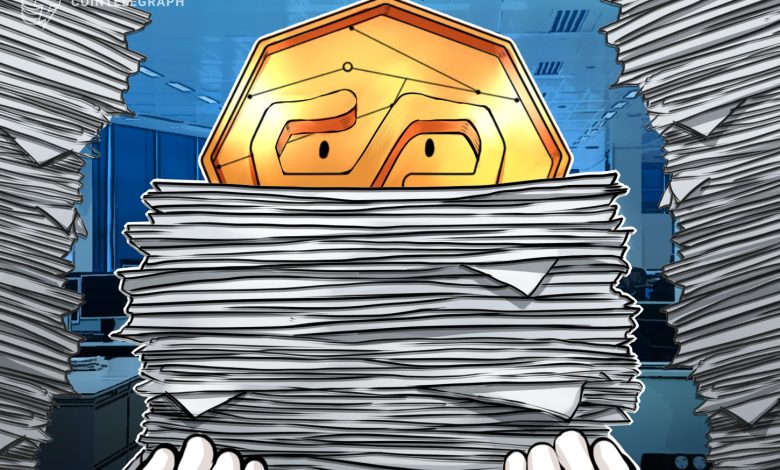Terra lawsuit a ‘roadmap’ to attack other stablecoins: Delphi Labs

The USA Securities and Trade Fee’s (SEC’s) lawsuit towards Terraform Labs and its co-founder Do Kwon could possibly be seen as an SEC “roadmap” to taking down different stablecoins, in line with a lawyer.
Gabriel Shapiro, common counsel at funding agency Delphi Labs, defined to his 33,800 Twitter followers on Feb. 16 that the SEC’s arguments in its grievance towards Kwon and Terraform have been “extra thorough than typical.”
whew lad, heaps to digest within the SEC lawsuit vs Do Kwon and Terraform Labs
proper off the bat, a really attention-grabbing reality is that the SEC is being extra thorough than usual–specifically working via the Howey check for numerous property (UST, LUNA, and wLUNA) and in addition alleging that… https://t.co/1JsBQijMnw pic.twitter.com/qHuL6mKpeo
— _gabrielShapir0 (@lex_node) February 16, 2023
Shapiro’s evaluation follows the SEC’s Feb. 16 lawsuit towards Kwon and Terraform, alleging they “orchestrate[d] a multi-billion greenback crypto asset securities fraud involving an algorithmic stablecoin and different crypto asset securities.”
Shapiro instructed the case might function a “roadmap” for a way the regulator could sue different stablecoin issuers sooner or later. He acknowledged the SEC made the case that Terra’s algorithmic stablecoin, TerraClassicUSD (USTC), previously TerraUSD (UST), constitutes a safety:
“[The SEC] will allege that integration, promotion, advertising and marketing, business offers and many others constructing the stablecoin ecosystems are ‘efforts of others’ which can be ‘moderately anticipated’ and may result in earnings in reference to the stables.”
He identified the SEC utilized the 4 prongs of the Howey check to argue that USTC, Terra Basic (LUNC) — previously known as Terra (LUNA) — and Wrapped LUNA Basic (WLUNC) all constituted securities below U.S. securities legal guidelines.

The SEC additionally argued that Terraform Labs breached U.S. securities legal guidelines by launching the Mirror Protocol, which allowed its customers to create what Terraform known as a “mAsset” — a crypto model of an asset that “mirrors” the value conduct of different property similar to shares.
The regulator claimed Terraform Labs dedicated this securities-based swap via the Mirror Protocol (MIR) token — which Shapiro believes to be a “first” in cryptocurrency-related lawsuits filed by the SEC.
Shapiro famous the SEC’s declare that wLUNA constituted a “receipt” for a safety was one other “first.”

Ryan Sean Adams, the host of the crypto-oriented podcast Bankless, made the same argument to his 221,300 Twitter followers on Feb. 16, noting {that a} authorized victory towards Terraform Labs would make it simpler to go after different stablecoin issuers.
Gensler’s subsequent technique is to go after Do Kwon and UST as a result of he is aware of nobody will defend them and if he wins he’ll set up broad precedent for extra management over crypto.
It is evil genius. https://t.co/FDLoeVcTLb
— RYAN SΞAN ADAMS – rsa.eth (@RyanSAdams) February 16, 2023
The Terra-linked tokens infamously crashed in Could 2022, which was partly triggered when USTC misplaced its peg to the U.S. greenback. As LUNC was carefully linked to USTC, its value fell by virtually 100% and triggered a wider downturn within the crypto markets, wiping out roughly $40 billion.
Associated: Why the SEC desires to ban crypto staking and stablecoins below scrutiny — watch the Market Report dwell
Kwon maintains that he’s not “on the run” and is believed to reside in Serbia, in line with South Korean officers who issued a warrant for his arrest.
Earlier in February, two South Korean prosecutors flew to the Balkan state to search out Kwon; nonetheless, the search try was unsuccessful.
Cointelegraph contacted Terraform Labs for touch upon the lawsuit however acquired no response by publication time.





